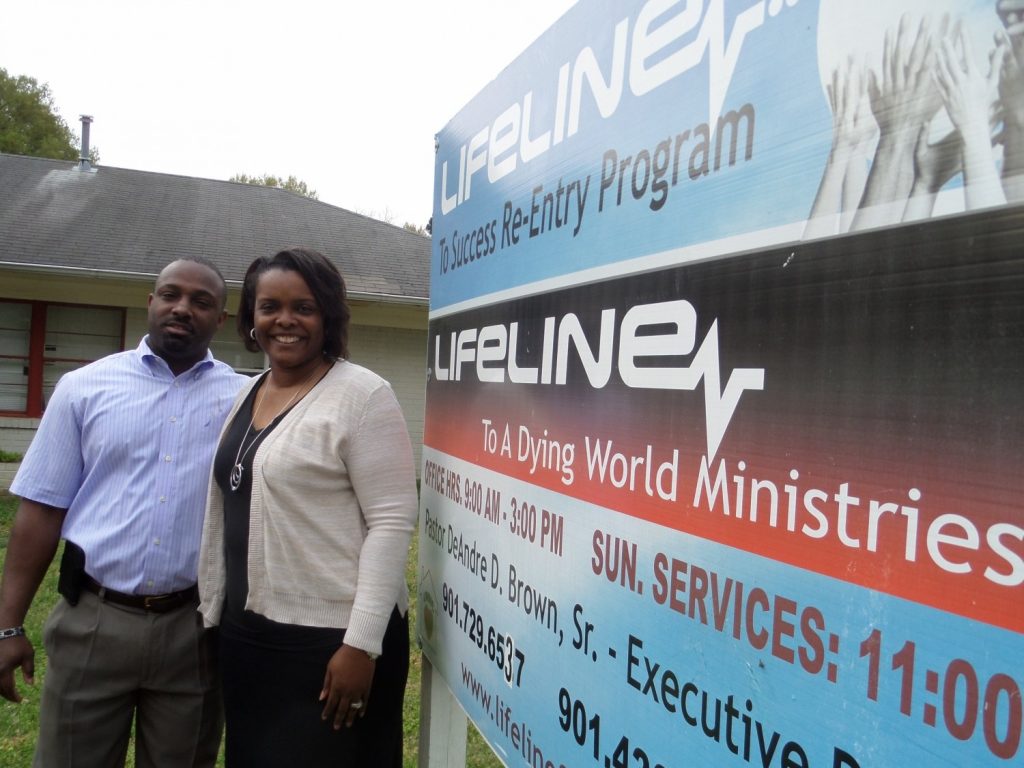The following post is written by Pastor DeAndre Brown, who, with his wife Vinessa, founded and operates Lifeline to Success, a nonprofit organization that has helped ex-offenders since 2009 reconnect with the mainstream of society. When many people join the program, they are considered “lost causes,” but drawing on their Christian faith and their unshakeable belief in redemption, the Browns intervene to transform their lives. They are two of the most special, most respected people we know and their impact in Memphis is inspirational.
By Pastor DeAndre Brown
“We give an 18-year-old four years to earn a degree, but want a felon to change in six weeks.”
I posted this to social media, and a friend of mine, who is an educator, responded to me, “I don’t like that comparison…no logic.”
That response really drives home my point. America doesn’t truly understand the requirement that is necessary to assist men and women that have been convicted of felony offenses with the transition into mainstream society.
Chronic criminal behavior is cultural. It is learned behavior. Individuals that choose to live lives consumed by criminal activity begin to see that way of living as normal. Their morals (or lack thereof) are based on the environment and what has become socially acceptable.
No longer is the question, “Is this right or wrong.” The new question is, “Will I get caught?”
If there is the slightest chance that the individual can get away with it, that activity is worth the risk. Knowing this is the reasoning used, society must begin to realize that deprogramming that logic and infusing a new logic and creating a new morality is going to take a MAJOR investment.
Some in society have accepted the premise that prison is a place of rehabilitation. Other feel that if a person commits crime, they need to be put in prison away from “us.” Many don’t understand that 95% of inmates will return home, and with that information, America needs to rethink the way we deal with individuals that have felony convictions.
As a former inmate that served time on the state and federal levels, I have intimate knowledge of how the prison system handles the individuals it is charged with serving. I served over two years and I was never given any rehabilitative opportunity- NEVER!
The argument is made that there aren’t enough resources to provide service to a majority of the inmates. So, instead, we spend over $25,000 a year housing adults in prison.
We have some decisions to make.
Do we want to punish all individuals that commit and are convicted of crime?
Do we want to modify their behavior and gain productive, tax paying citizens, or do we want to continue releasing them as tax burdens?
Is the over $25,000 a burden or an investment?
It’s time to rethink how we spend those valuable tax dollars.
Imagine what would happen if that same $25,000 was an investment in rehabilitation, as opposed to being seen as an expense. The ROI is astronomical! Not only would the individuals be transformed, the number of victims would be drastically reduced and the tax base would increase. Children would have parents! Those parents would become positive role models. Crime would decrease. Society would be better for it.
We give an 18-year-old, who is still trying to find his/her way four years in high school and the resources to make decisions that will help chart the course of their lives. That is noble and justifiable, but we must begin to understand the depth of the trauma most convicted felons present with. That trauma can’t possibly be processed in 6, 8, 12, or 16 weeks. In some cases, it took decades to program those individuals with criminogenic thinking.
There is no quick fix. Fund work that affords these adults the opportunity to be reclaimed. Do we want to regain citizens, or do we want to continue to punish criminals and never impact that cycle?
***
Join us at the Smart City Memphis Facebook page for daily articles, reports, and commentaries that are relevant to Memphis.




